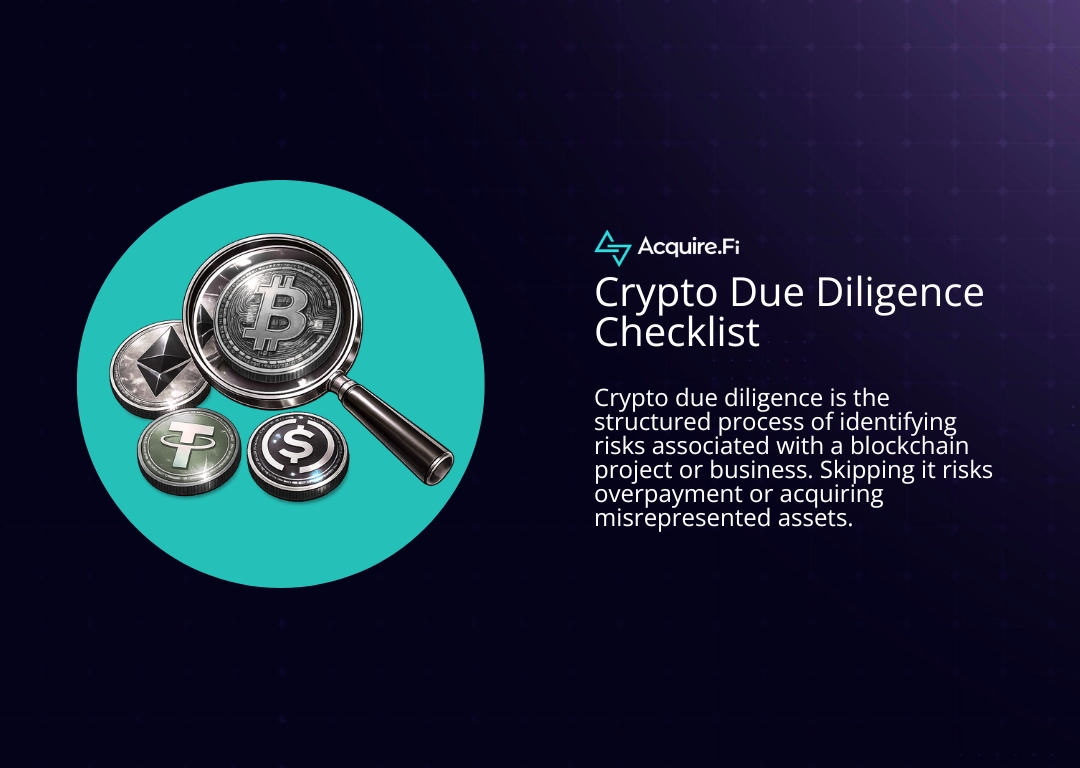How Hedge Fund Auditors Ensure Financial Transparency
Hedge funds are alternative investment funds that cater to high net worth individuals and institutional investors. These funds employ sophisticated investment strategies and complex financial instruments to generate high returns. Given the size and complexity of these funds, investors require complete and accurate information to make informed investment decisions. Hedge fund auditors play a critical role in ensuring financial transparency in these funds. This article will discuss the role of hedge fund auditors in financial transparency, their key responsibilities, the audit process, regulatory framework and compliance, and the challenges they face.
Understanding Hedge Fund Auditors and Financial Transparency
Financial transparency is the cornerstone of the investment process. It ensures that investors have complete and accurate information about a company's financial performance and risks. Hedge fund auditors are independent third-party professionals who are responsible for assessing the financial statements of a hedge fund and providing an opinion on their accuracy and completeness. They ensure that the financial statements reflect a true and fair view of the fund's financial position, performance, and risks. Additionally, they ensure that the fund adheres to regulatory requirements and ethical standards.
The Importance of Financial Transparency in Hedge Funds
Financial transparency is crucial in the hedge fund industry. It is a key factor in building trust and confidence between hedge fund managers and investors. Investors rely heavily on audited financial statements to assess the performance of a hedge fund and make investment decisions. Without financial transparency, investors would be unable to make informed investment decisions, and market stability and integrity would be compromised.
Financial transparency also plays a vital role in realizing social welfare and investor protection. By providing investors with complete and accurate information, they can make informed decisions that align with their investment goals and risk tolerance. Moreover, financial transparency helps regulators monitor the activities of hedge funds and ensure that they comply with regulatory requirements and ethical standards.
Key Responsibilities of Hedge Fund Auditors
As independent third-party professionals, hedge fund auditors have a broad range of responsibilities. They are responsible for ensuring that the financial statements of a hedge fund are accurate and complete. This includes evaluating and testing the fund's internal controls, assessing the valuation of the fund's assets and investments, assessing the accuracy and completeness of the financial statements, and providing an opinion on the true and fair view of the financial statements.
In addition to these responsibilities, hedge fund auditors are also responsible for identifying and reporting any material misstatements or deficiencies in the fund's financial position, performance, or risks. They are also responsible for evaluating the fund's compliance with regulatory requirements and ethical standards.
Hedge fund auditors play a crucial role in ensuring financial transparency in the hedge fund industry. By providing investors with complete and accurate information, they help build trust and confidence in the investment process and support market stability and integrity.
The Audit Process for Hedge Funds
The audit process for hedge funds is a crucial step in ensuring the accuracy and completeness of financial statements and compliance with regulatory requirements. It helps investors and stakeholders make informed decisions and assess the risks associated with investing in hedge funds. The audit process typically comprises three stages: pre-audit planning and risk assessment, conducting the audit procedures and techniques, and post-audit review and reporting.
Pre-Audit Planning and Risk Assessment
The pre-audit stage is a critical step in the audit process as it sets the foundation for the entire audit. During this stage, the auditor plans the audit and assesses the risks associated with the fund. The auditor assesses the fund's risk profile, financial performance, and internal controls to determine the scope and depth of the audit. This stage also involves establishing the audit objectives, understanding the hedge fund's accounting policies and procedures, and identifying potential audit risks.
For instance, the auditor may review the fund's investment strategy, investment portfolio, and trading activities to assess the risks associated with the fund's investments. The auditor may also review the fund's compliance with regulatory requirements, such as the Securities and Exchange Commission (SEC) rules and regulations, to identify potential audit risks.
Moreover, the auditor may meet with the fund's management team to discuss the audit objectives, audit scope, and potential audit risks. The auditor may also request relevant documents and information, such as financial statements, investment reports, and internal control documentation, to prepare for the audit.
Conducting the Audit: Procedures and Techniques
During this stage, the auditor performs the audit procedures based on the planned audit approach. The auditor uses various techniques and procedures to assess the fund's financial statements and internal controls. The procedures may include testing the design and operating effectiveness of internal controls, assessing the valuation of the fund's investments, auditing the financial statement line items, and assessing compliance with regulatory requirements.
For instance, the auditor may test the fund's internal controls by reviewing the control environment, assessing the risk assessment process, and testing the operating effectiveness of key controls. The auditor may also assess the valuation of the fund's investments by reviewing the investment portfolio, assessing the fair value measurements, and testing the valuation methodologies.
Moreover, the auditor may perform substantive procedures, including sample testing, analytical procedures, and inquiry with the management and third parties. The auditor may also review the fund's compliance with regulatory requirements, such as the SEC rules and regulations, to identify any potential non-compliance issues.
Post-Audit Review and Reporting
The post-audit stage involves reviewing the audit findings, documenting the audit work, and reporting on the audit results. The auditor prepares an audit report that summarizes the audit findings, including any material misstatements or deficiencies identified during the audit. The report also includes the auditor's opinion on the accuracy and completeness of the financial statements and compliance with regulatory requirements and ethical standards.
For instance, the auditor may prepare a management letter that summarizes the audit findings and recommendations for improving internal controls and financial reporting. The auditor may also provide feedback to the fund's management team on the audit process and any potential areas for improvement.
In conclusion, the audit process for hedge funds is a critical step in ensuring the accuracy and completeness of financial statements and compliance with regulatory requirements. The process involves pre-audit planning and risk assessment, conducting the audit procedures and techniques, and post-audit review and reporting. By following these steps, auditors can provide investors and stakeholders with reliable and transparent financial information, which is essential for making informed investment decisions.
Regulatory Framework and Compliance
The hedge fund industry is subject to various regulatory requirements and ethical standards. These requirements include registration and reporting requirements, investment restrictions, disclosure requirements, and compliance with anti-money laundering and anti-terrorism financing laws. Hedge fund auditors play a critical role in ensuring that the funds comply with these requirements. They assess the fund's compliance with the regulatory framework during the audit process and report any non-compliance to the relevant regulatory authorities.
Key Regulations Affecting Hedge Fund Auditors
Some of the key regulations affecting hedge fund auditors include:
- The Dodd-Frank Wall Street Reform and Consumer Protection Act
- The Sarbanes-Oxley Act
- The Investment Advisers Act
- The International Financial Reporting Standards
Ensuring Compliance with Regulatory Requirements
Hedge fund auditors ensure compliance with regulatory requirements by performing an audit in accordance with the applicable auditing standards and guidelines. These standards and guidelines provide a framework for the audit process and ensure that the auditor gathers sufficient and appropriate audit evidence to support their opinion.
The Role of Auditors in Detecting and Preventing Fraud
Hedge fund auditors also play a critical role in detecting and preventing fraud. They assess the fund's internal controls, evaluate the risk of fraud, and identify any potential fraud schemes. They also report any suspected or actual fraud to the relevant regulatory authorities.
Challenges Faced by Hedge Fund Auditors
The hedge fund industry poses several challenges for auditors, including:
Complex Investment Strategies and Valuation Issues
Hedge funds employ complex investment strategies and instruments, making it challenging for auditors to assess the valuation of the fund's assets and investments. Hedge fund auditors often engage specialist valuation firms to assist in assessing the fair value of the investments and to provide independent and objective opinions on the valuation.
Limited Transparency and Offshore Structures
Hedge funds are often structured offshore, making it challenging for auditors to obtain complete and accurate information about the fund's operations and transactions. Additionally, hedge funds may limit access to their portfolio holdings, making it challenging for investors and auditors to assess the fund's risks and performance accurately.
Evolving Regulatory Landscape and Emerging Risks
The regulatory landscape for hedge funds is continually evolving, making it challenging for auditors to keep up with the latest requirements and standards. Additionally, emerging risks, such as cyber threats and climate change, pose new challenges for hedge fund auditors to assess and report.
Conclusion
Financial transparency is critical in the hedge fund industry, and hedge fund auditors play a pivotal role in ensuring it. They provide investors with independent and objective opinions on the accuracy and completeness of the fund's financial statements, assess compliance with regulatory requirements and ethical standards, and report any deficiencies or non-compliance to the regulatory authorities. Hedge fund auditors face several challenges, including complex investment strategies, limited transparency, and evolving regulatory requirements and emerging risks. Hedge fund auditors must continually upgrade their skills and expertise to keep up with these challenges and ensure that they provide investors with the information they need to make informed investment decisions.












.webp)